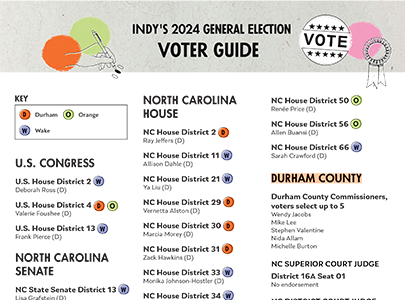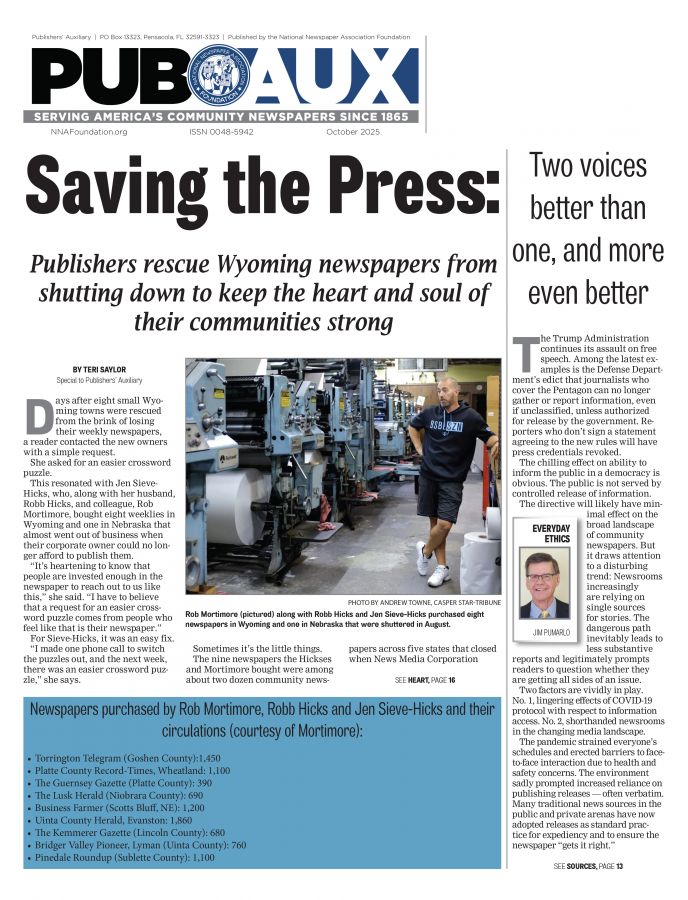Keep eye out for 11th-hour election volleys
Jim Pumarlo
Sep 1, 2022


Election Day is only weeks away. The hyper partisanship of races at all levels — from local to state to federal — demands that editors pay extra attention to press releases and letters to the editor. The editing and delete buttons on your keyboard are likely to get an extra workout.
Navigating exchanges among candidates, as well as their supporters and detractors, is always a delicate and often exhausting task as editors strive for fairness and consistency in election reports.
The stakes are ramped up even higher in the final weeks as candidates and their camps seek to level charges at the last possible moment in press releases and letters to augment — or maybe even replace — advertising campaigns.
Newsrooms should have the discussion and be prepared. Set the ground rules if you have not already done so, and publicize the guidelines.
The rules of fair play should be standard practice in press releases. Candidates often weigh in on issues at the forefront of a campaign. If you deem a release worthy of publication, it’s simply sound journalism to get an opponent’s take on an issue, as well. It should be mandatory to seek comment if the release references and takes issue with an opponent’s stance.
Newsrooms are most likely to see 11th-hour charges volleyed through letters to the editor. Here are some guidelines to consider.
First and foremost, set two deadlines for letters. Set one deadline for letters that raise no new issues, the final deadline for all elections letters. Second, set an earlier deadline for letters that raise new issues. This gives opponents an opportunity to respond, if they so wish.
If a letter misses the deadline, consider these alternatives:
If you believe the letter is baseless, feel free to reject it outright. You’ve publicized your guidelines and deadlines, so stand your ground. Don’t underestimate campaign strategy. The individuals calling the shots in the back room often sit on something for weeks and wait to spring it in the final days, hoping an opponent doesn’t have time to respond.
However, if you believe a letter has merit, consider these two options:
- Turn the letter into a news story, giving both candidates a chance to comment. You’ll first need to have a conversation with the candidates, explaining your rationale. You’ll want to explain to readers as well within the story or with an editor’s note.
- As an alternative, publish the letter but also give the opposing candidate an opportunity to respond with a letter in the same edition. As always, explain the hows and whys behind your decision with an editor’s note. The circumstances might warrant a longer explanatory column to readers.
Most important, publicize the guidelines and deadlines for letters early and often. That is your best offense to combat the shenanigans of political operatives.
I remember well the days when our FAX machine was spitting out election letters as the deadlines neared. A local office was headquarters for one political party, and numerous letters were sent from the same machine, each signed by a different individual.
FAX machines always posted the time a document arrived. On one occasion, a letter arrived two minutes after our deadline. I called and informed the “coordinator” that the letter would not be published. He challenged the time on our FAX machine. I politely and firmly informed him that he had known the deadlines for eight weeks.
End of conversation. He embarrassingly had no response or defense for pushing the limit. And he never missed another deadline.
Jim Pumarlo is former editor of the Red Wing (Minnesota) Republican Eagle. He writes, speaks and provides training on community newsroom success strategies. He is author of “Journalism Primer: A Guide to Community News Coverage,” “Votes and Quotes: A Guide to Outstanding Election Coverage” and “Bad News and Good Judgment: A Guide to Reporting on Sensitive Issues in Small-Town Newspapers.” He can be reached at www.pumarlo.com and welcomes comments and questions at jim@pumarlo.com.










